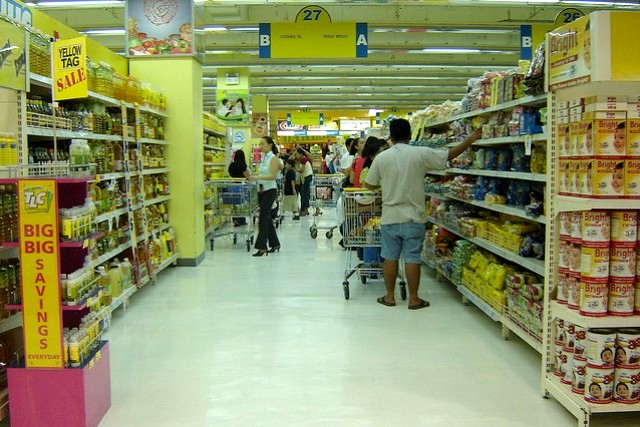Inflation picks up to 3.1% in August

The faster increase in the consumer price index last month likewise brought average inflation to 3.1 percent in the first eight months of the year, PSA said. File
MANILA, Philippines — Inflation further picked up in August, hitting a three-month high of 3.1 percent as food and oil prices spiked during the period, the Philippine Statistics Authority (PSA) said yesterday.
The faster increase in the consumer price index last month likewise brought average inflation to 3.1 percent in the first eight months of the year, PSA said.
The National Economic and Development Authority (NEDA), the agency overseeing the PSA, said higher prices of food, petroleum products, as well as utilities led to the rise in headline inflation in August, from 2.8 percent in July and 1.8 percent in August 2016.
Core inflation, which excludes select food and energy prices, rose three percent in August from the revised 2.8 percent in July and two percent in August 2016.
NEDA said the August inflation figure slightly beats the average three percent market forecast but remains within the mid range of the government’s two to four percent target.
“Inflation is still expected to remain well within government’s target for the year despite accelerating for the second time in a row. Nonetheless, we should continue to closely monitor upside and downside risks,” said Socioeconomic Planning Secretary and NEDA chief Ernesto Pernia.
Food inflation rose to 3.7 percent last month from 3.4 percent due to faster increases in the prices of vegetables, fish, corn, flour, bread and other cereals.
“One cause is Typhoon Jolina last month, which affected agriculture in Central Luzon, particularly in Aurora,” Pernia said.
Non-food inflation, meanwhile, rose to 2.7 percent from 2.4 percent in July. This was attributed to hikes in the prices of transportation, housing, recreation and culture, communication, restaurants, water, and electricity and gas.
Higher domestic petrol prices, particularly unleaded gasoline, diesel, kerosene, and liquefied petroleum gas, mainly caused higher inflation in the transport sector.
“The continuing surge in domestic petrol prices, coupled with depreciation in the peso-dollar rate, may exert upward pressures on inflation, leading to increases in the cost of electricity, gas, and other fuels in the near term,” Pernia said.
Bangko Sentral ng Pilipinas (BSP) Governor Nestor Espenilla Jr. said monetary authorities continue to see a manageable inflation outlook after taking into consideration the latest inflation reading in August.
“The inflation path will be supported by favorable outlook for domestic economic activity with appropriate liquidity conditions and well-anchored inflation expectations,” he said.
He said inflation is projected to settle near the mid-point of the government’s target range of two to four percent between 2017 and 2019.
“The within-target path of inflation over the policy horizon provides the BSP with the flexibility of assessing our monetary tools to enhance further our responsiveness to the evolving requirements of the economy,” he added.
The BSP’s Monetary Board kept interest rates unchanged last Aug. 10 when Espenilla presided over his first rate-setting meeting since taking over as BSP governor and Monetary Board chairman last July 3.
The robust domestic demand and benign inflation environment has allowed the BSP to keep interest rates steady since September 2014, when key benchmark rates were hiked by 25 basis points.
Last Aug. 10, the Monetary Board raised its inflation forecasts to 3.2 percent instead of 3.1 percent this year; to 3.2 instead of three percent next year; and to 3.1 percent instead of three percent for 2019.
ANZ Bank economist Eugenia Victorino said inflation is seen averaging three percent this year and 3.3 percent next year due to upside risks including the implementation of the tax reform program.
She pointed out the BSP is seen hiking rates by 25 basis points in the fourth quarter of the year.
“We are still of the view that tighter monetary conditions are unavoidable. The combined imbalances of strong credit growth, excessive expansion in the real estate sector, and current account deterioration are intensifying risks on the quality of growth,” Victorino added.
On the other hand, Standard Chartered Bank economist Chidu Narayanan said the central bank is seen keeping interest rates steady for the rest of the year as inflation would stay within the BSP target.
“Based on the details, we think the BSP should still be comfortable enough with inflation, to keep rates on hold through this year,” he said.
- Latest
- Trending
























